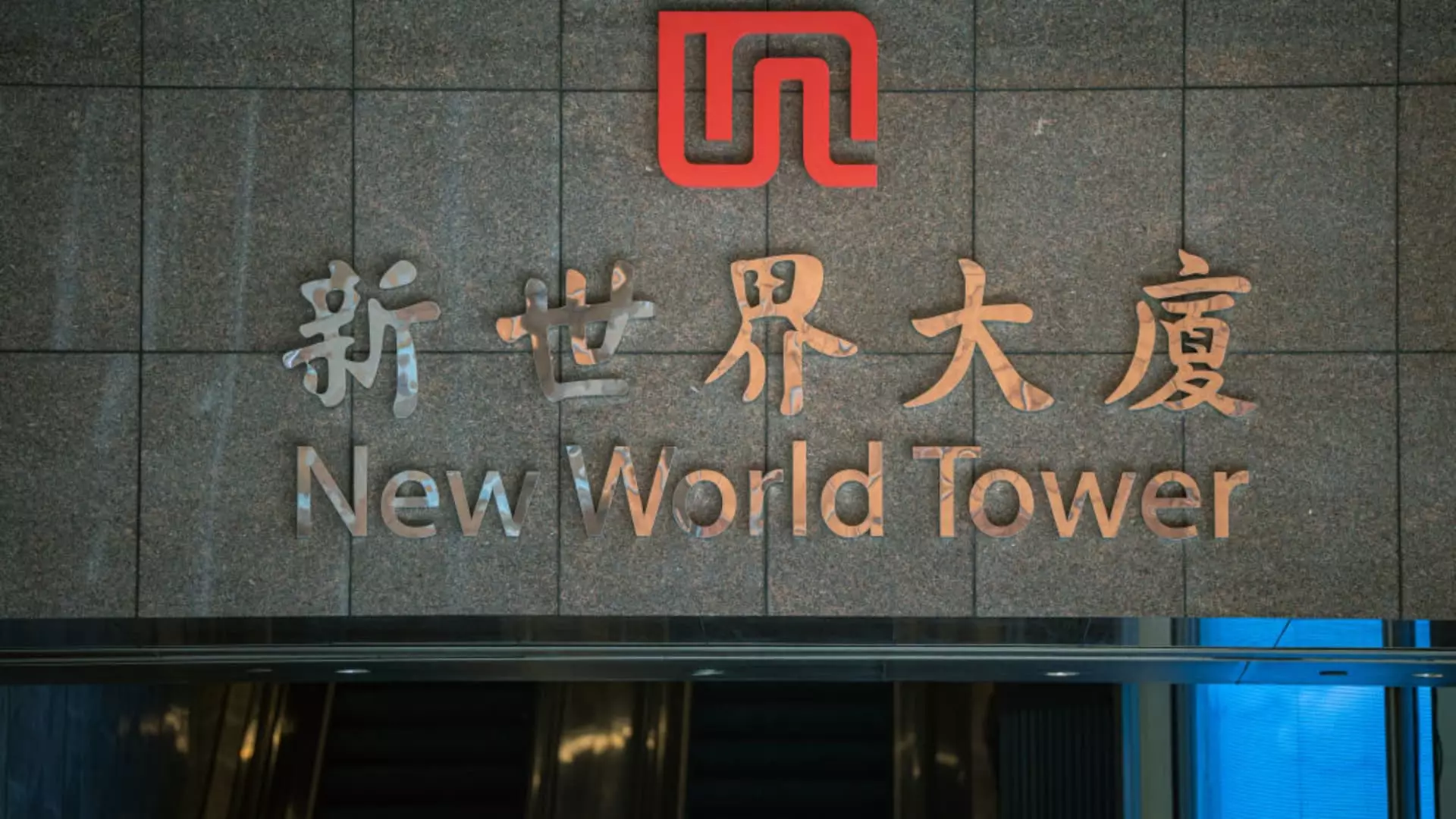The unexpected resignation of Adrian Cheng, a key figure in Hong Kong’s New World Development, marked a significant moment for both the company and the broader market. Upon the news of Cheng’s departure, shares of the development firm surged by an impressive 23% when trading resumed on Friday. This rise signals a potential vote of confidence from investors, who may see this leadership change as an opportunity for revamped strategies within the company. The swift trading halt prior to the announcement, intended to prepare the market for a significant update, speaks volumes about the perceived importance of this transition.
Cheng’s resignation comes with the appointment of Eric Ma Siu-Cheung as the new CEO, breaking from the traditional family lineage that has characterized New World Development’s past leadership. This shift raises important questions about the efficacy of entrenched family governance in an era where professional management may be more beneficial. Alicia Garcia-Herrero, chief economist for Asia Pacific at Natixis, emphasizes the significance of corporate governance in these turbulent times, noting that the strategy of relying on familial ties is increasingly untenable in challenging market conditions. This change might reflect a broader trend in Asia, where companies are recognizing that effective management and a departure from nepotism may be crucial to navigating economic difficulties.
New World Development’s stock price increase, while noteworthy, cannot overshadow the economic hardships the company is facing. The developer has reported anticipated financial losses of up to HK$20 billion ($2.6 billion) attributed to declining sales and significant impairment charges. These losses are symptomatic of the broader real estate challenges gripping both Hong Kong and mainland China. Elevated debt levels further complicate the scenario, illustrating the deeper structural issues within the property market that organizations like New World must grapple with.
The context of this leadership change is a broader financial landscape influenced heavily by government intervention. Recent stimulus measures from China’s central bank aim to revitalize the faltering real estate sector, which may be contributing to the recent upturn in stock prices. As investors respond positively to potential increases in economic activity, the correlation between government policy and company performance becomes increasingly evident. The overarching goal of stabilizing the real estate market has become a priority, as highlighted in discussions among China’s leadership regarding monetary and fiscal support.
The resignation of Adrian Cheng and the ascension of Eric Ma Siu-Cheung signify a pivotal moment for New World Development, reflecting a broader shift in corporate attitudes towards governance and leadership models. The surge in stock prices indicates investor optimism, yet this is set against a backdrop of considerable financial distress and economic uncertainty. Whether this leadership transition can steer New World Development towards stability and growth, ultimately depends on the effectiveness of its new strategies amid fluctuating market conditions and the ongoing impact of government support initiatives. As the company endeavours to navigate these challenges, the importance of seasoned management and adept corporate governance has never been more apparent.

